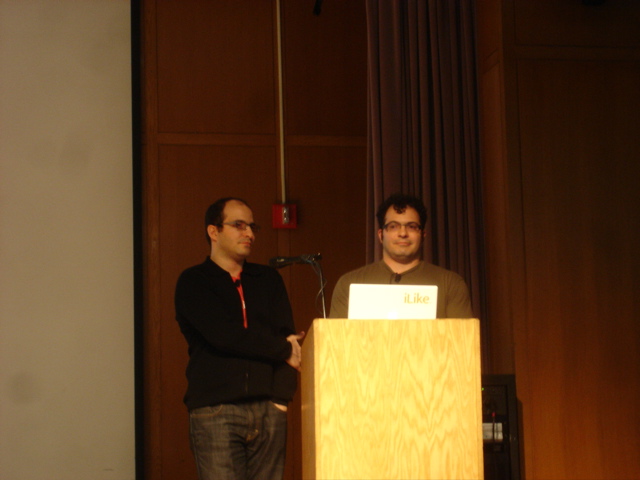Recently in Startup School '07 Category

Mark Zuckerberg at Startup School 2007.
importance of being young, and being technical & building things
being technical
- first 10 people at facebook were technical
- first CSR wrote code to automate the process - gave him leverage
- coding gets you into a position of leverage - work can be utilized beyond raw effort
focus on iteration
- empower people who do the building (technical folks)
- get rid of layers between build and customers
Facebook's mission - "trying to make the world a more open place"
being young
- less clutter in life (mortgage, responsibilities, etc) - leaves room to be idealistic
- allows you to focus on what's important
Facebook is currently handling 1.5 billion page views a day
- can only do that because they are a deeply technical company
- even management is technical
Mark takes a moment to promote the Facebook development platform
- makes facebook provide "friend infrastructure" to the internet
- their openness here, if they do it right, could be really freakin' huge
facebook is a technology company, not a media company. guides how the hire (technical), and how they direct their efforts. Guides the culture of the company.
facebook is getting people to share a lot more data, because it gives control of the audience - you can share photos just to your org, school, etc.
work w/ people you have a high trust, high bandwidth communication with
Ali Partovi - Founder, iLike
Hadi Partovi - President, iLike

Ali and Hadi Partovi at Startup School 2007.
Is my idea a winner? better metric is the team or group of people
- can i easily explain what the customers need in one or two sentences?
- does the business scale - can you double your revenue w/o also doubling costs?
- am i creating added value? book - "co-opitiion" size of pie when i'm in the game, vs. when not in the game -- that is the added value.
- will the users naturally recruit new users?
- network effect - will the value delivered to each customer increase as # of customers increase?
- passion - is the entrepreneur passionate about the idea?
Do's:
- listen to customers, identify with them. critical to actually listen to them yourself.
- rank top problems most critical to success - rank top people, assign top people to top problems (for bigger companies). delegating effectively
- make frugality and profitability part of your culture. avoid a luxurious environment. cut spending anywhere you can.
- move quickly. make decisions fast! avoid committees. avoid 12-month development projects.
- have a strong CEO. best sales person, outward person as CEO.
- FOCUS - can't afford to be spread thin when company is small.
- hire great people. judging people is most important skill you can learn in business.
Don'ts:
- be distracted by the press; don't make decisions based upon press coverage. value is to help with recruiting or to aid with strategic partners.
- don't take your company culture for granted - natural flow is for organizations to become political. want to start thinking about this at the early days, to keep it going.
- don't be greedy in business negotiations. let other company have bigger piece of pie, in return for speed
- don't ignore your gut feel about an employee or candidate
- forget to have fun.
